In this post we look at the research to answer the question, should babies avoid grains, wheat, and cereals before 12 months to reduce allergies, digestion issues, and anemia?
With food allergies among children increasing over the years, it can be confusing for parents to decide if introducing the common allergens to their children is beneficial or harmful. We’ve discussed allergen introduction at length on the blog, and have focused in on the top 8 allergens for children: peanuts, eggs, milk, mustard, seafood, sesame, soy, fish, tree nuts, and wheat. You can click here to read more about how and when to introduce food allergens to babies, and click here to read more about some general allergy prevention tips, but here’s a quickie summary. First, research has found that introducing allergens while breastfeeding may help reduce the risk of allergies. And there seems to be a sweet spot between 4 to 6 months where the introduction of allergens yields the lowest risk of developing that allergy. It is more complicated than that, of course, so do check out those two posts to get a more in depth look.
So while we have these new guidelines, one of the big questions I am still reading about on my mom groups is specifically about GRAINS, WHEAT and CEREALS. It seems evident with the new guidelines that we don’t want to delay allergens like peanuts or eggs anymore like we used to think we should, but in the age of gluten-phobia, there seems to still be a lot of hesitation around wheat and grains. A lot of moms wonder if their babies should avoid grains, wheat and other cereals before 12 months because they’re seen as “junk” or because they aren’t easily digested. What does the research say? Let’s take a look.
The Role of Wheat and Grains and Baby’s Risk of Wheat Allergy
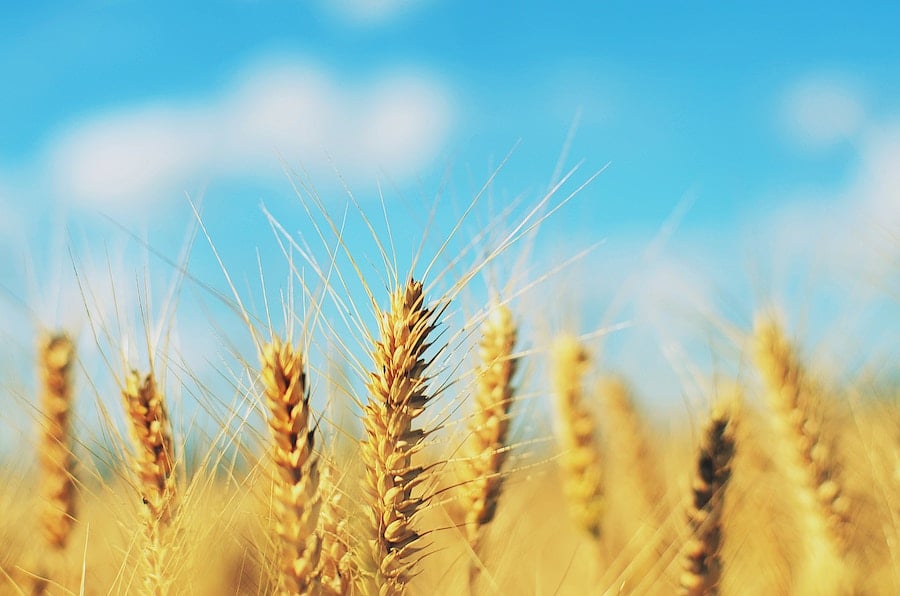
First of all, let’s talk about the timing of introducing wheat, grains and cereals and baby’s relative risk of developing a wheat allergy as this is one of the primary arguments I hear parents use to suggest why they want to delay or avoid offering their baby grains. One study looked at wheat introduction in children before 6 months of age and after 6 months of age. During this study, the researchers followed up with the parents of the children at 3, 6, 9, 12, and 15 months of age to collect a diet and allergy history. After eliminating the infants that tested positive for celiac disease antibodies, they found that late introduction of wheat (likely somewhere after 6 months of age) tended to actually increase the risk of developing a wheat allergy.
Bottom line: Much like the research on eggs and peanuts and the update guidelines that followed, it seems like there is actually a sweet spot for introducing wheat as a common allergen where the risk of developing a wheat allergy is lowest – likely somewhere between 5 to 7 months.
The Role of Wheat and Grains and Baby’s Risk of Celiac

Now let’s clarify the difference between a wheat allergy and celiac disease. An allergy is an immune response to any of the proteins found in a food, in this case, wheat. The reactive responses can result in hives, itching, and swelling, but may also be life threatening.
Celiac disease, on the other hand, is an autoimmune disorder of the small intestine that occurs in reaction to the ingestion of gluten. Individuals with celiac disease usually need to avoid gluten completely because the lining of the small intestine can become damaged with frequent exposure to gluten.
So what is the impact of introducing gluten-containing grains, wheat and cereals to baby on the risk of celiac disease?
One study followed infants with a family history of celiac from 6 months to 2 years of age and did not find that the timing of introduction of gluten was an independent risk factor for developing celiac.
On the other hand, a study that followed over 1500 children with a family history of celiac disease found that the timing of gluten introduction was a factor in preventing the development of celiac disease. It specifically found that introducing gluten between the ages of 4-6 months reduced the risk of developing celiac disease. Another study found that children, who were still breastfed after the introduction of gluten, reduced their risk of developing celiac disease.
Bottom Line: We probably still need more research in this area, but for now it seems safe to assume that, as with the allergen reduction guidelines, it is better to introduce gluten early (somewhere between 4-6 months) to help reduce the risk of celiac disease.
Can Babies DIGEST Wheat, Grains, Cereals and Starch Before 12 Months?

So this is a common argument I read on a lot of holistic websites to justify why babies shouldn’t have grains, wheat or other cereals in the first year of life (or ever, for that matter!). First of all, let’s define starch. A starch is a type of carbohydrate where a lot of glucose molecules are attached together. We can find starch in grains, some root vegetables such as potatoes and squash, and in fruit.
Pancreatic enzymes are what break down the starch in our bodies. Babies pancreatic enzyme levels are about 3% of that of an adult and don’t reach their maximum levels until 5 years of age. So does that mean babies are unable to digest starch? Here’s what we do know.
Babies start to make more pancreatic enzymes after 6 months of age, around the time when most families start solids. The more pancreatic enzymes they make, the more they are able to digest starch-based foods. Breast milk actually contains the amylase enzyme that helps break down starch and after babies consume breast milk, the enzyme continues working in their body for up to 12 hours. Although some infant formula have enzymes added to them, at this time we haven’t been able to create a comparable product to what’s found in human breast milk. Glucoamylase is an enzyme that is found to be very active in infants and is responsible for breaking down starch and by the age of just 1 month of age, their levels are comparable to that of an adult.
Bottom Line: It is safe to say that babies are able to digest starch before 12 months (and beyond) thanks to their natural levels of digestive enzymes in their bodies and in the breast milk they (may) consume.
Benefits of Wheat, Grains and Cereal for Baby
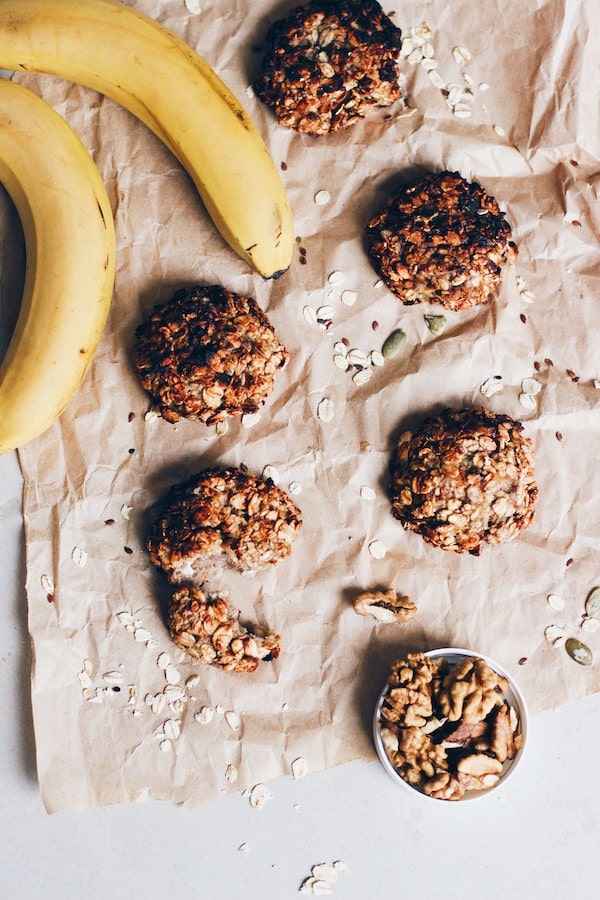
There are many benefits of giving your baby wheat, grain, and cereals products because they are often enriched with or natural sources of iron, thiamine, riboflavin and also fibre. Iron is particularly important as babies’ needs are very high and a lot of parents find that meat tends to be a hard sell for babies in those early days. For a full list of iron-rich foods for baby, check out this list here.
They also tend to be generally palatable and easy for babies to eat, so they can be a great meal component in those early days of starting solids. If you’re getting started using BLW techniques, definitely check out my post here.
Here’s what to look for when choosing grain products for baby:
- Enriched with Iron
- Whole Grain/ Whole Grain Flour
- Low or no salt added
- No sugar added
Some of my favourite grain, wheat or cereal options for baby include:
- Whole grain enriched pasta
- Whole wheat muffins like these
- Quinoa
- Oatmeal – baked like this!
- Enriched baby cereal – ideally a non-rice option like this organic oat based one
So Should Babies Avoid Grains, Wheat and Other Cereals Before 12 Months?
Nope! There is no evidence to suggest that you should limit or avoid grains, wheat or cereals for babies before 12 months – in fact, it may do more damage than good. Focus on choosing nutrient-dense grains and offering them in rotation with a wide range of other healthy foods.
If you need more ideas to get you started on solids or BLW, check out my intro posts here and here.
Now lovelies, tell me – when did you introduce grains, wheat or cereal to your babies?
Leave me a comment below with your thoughts on what you did, or plan to do!
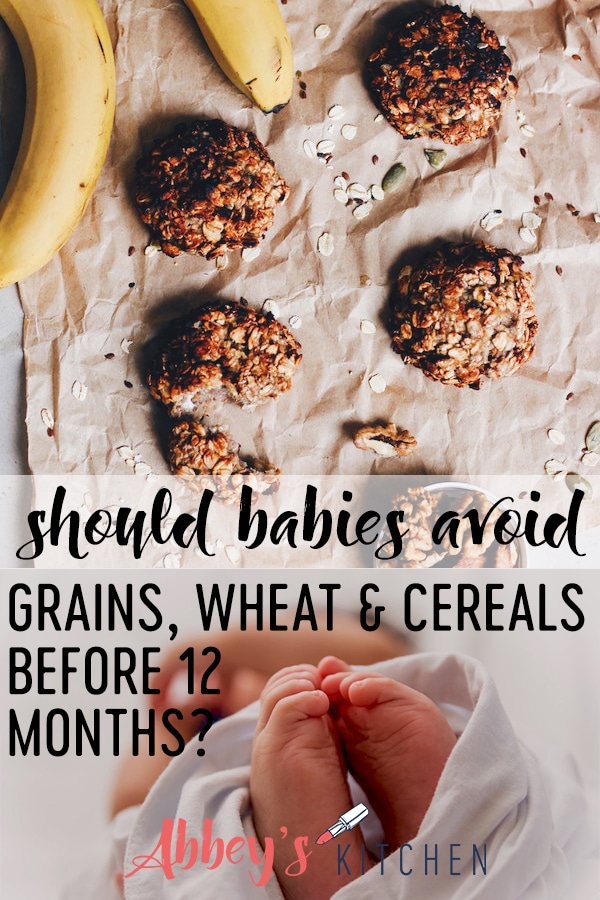
Research by RD2B Preveena Manisekaran
Updated on October 8th, 2020

Abbey Sharp is a Registered Dietitian (RD), regulated by the Ontario College of Dietitians. She is a mom, YouTuber, Blogger, award winning cookbook author, media coach specializing in food and nutrition influencers, and a frequent contributor to national publications like Healthline and on national broadcast TV shows.

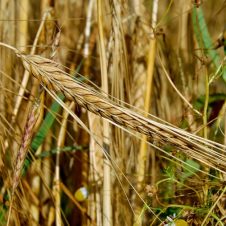
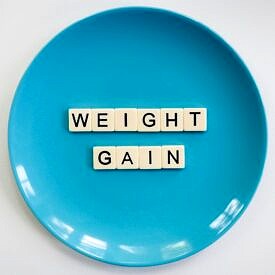

Meghan says
I have Celiac, but I also can’t even touch anything with wheat or gluten in it. I react to it upon contact, let alone eating it. Upon contact or ingesting the smallest amount, I get severe neurological reactions, including intense confusion (think temporary dementia-like symptoms), stabbing pains throughout my body, my throat starts to narrow, tremors, etc. I can have symptoms for weeks afterward, depending on how bad the accidental contact or ingestion was. I have other autoimmune conditions as well.
I want to have kids, and I want to introduce them to all foods to limit their chances of developing severe conditions like my own, but I’m so concerned about this. Because of my severe reactions, I have to limit contact with children who are eating anything with wheat or gluten, and I don’t allow gluten or wheat in my home.
How can I introduce my babies to these foods when I have such extreme reactions? I don’t want this stuff in my home because it’s my one safe place where I can touch everything without worrying. Yet I know I need to introduce these foods to them to lower their chances of getting Celiac and allergies. I’m stressed out and sad about this. I don’t want to have to worry about coming into contact with my baby’s saliva, clothing, face, hands, etc. I once reacted to kissing my husband an hour or two after he’d eaten a burger.
Please help!
Roman says
Why wouldn’t you even mention the anti-nutrients present in grains that inhibit the absorption of essential minerals like iron, calcium, magnesium and zinc?
Stefanie R. says
Introduced oats to my babe 5.5-6months with some pumpkin purée. She loves them and so far has been digesting them very well.
Abbey Sharp says
Thats great!
Angela says
This is such an informative post! I remember being so careful with what a gave my first baby to eat during the first 12 months!
Abbey Sharp says
Totally. Thanks Angela
Elle says
I’m so glad I found this too. Thank you for clarifying that. I have read a so-called child nutrition expert who advocates for no grains until 12 months and I was very nervous to introduce them but as you are a registered dietician I trust this. Why do you say preferably not rice though?
Emily @Sinful Nutrition says
Such an informative post! Definitely a good topic to get to the bottom of, and so glad you did!
Abbey Sharp says
Thank you!
Kalee says
Oh wow! This is so enlightening! I had no idea; this is definitely something I’ll pass on to my friends that are expecting.
Abbey Sharp says
Amazing. Thanks Kalee